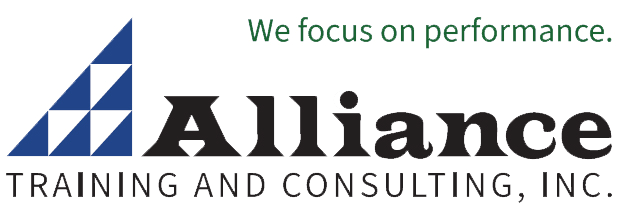The 12 Essential Characteristics of Teamwork
By: Anna DeBattiste
Here’s a great question to ask a candidate in an interview: Describe the best team you have ever participated in. What made it good? How about the worst team you have ever been on? What made it bad?
The answers are usually revealing and will give you a good idea of whether the candidate truly understands how to be part of a great team. Here are some characteristics of great teams:
1. An effective team has a name, and a shared and published mission statement. An effective team has a sense of shared identity.
This does not mean that the organization has mission statement posters in the hallways. It means that the team has a sense of mission and purpose that is clear and focused and passionate, one that guides all of the team’s activities.
2. An effective team has both values (underlying core beliefs) and norms (standards of behavior) that are known by and agreed to by all team members. Norms are explicit and based on values.
For example, one of your team’s values might be effective communication. Then the team would have multiple norms that support that value, such as “All new team members will be announced and introduced via email,” or “We will always try to say what we are really thinking during discussion of new ideas.”
3. An effective team has members who respect and trust each other. Members listen actively and empathetically to each other, seeking first to understand.
There are two parts to this characteristic. First, teammates must be willing to be vulnerable to each other in order to have trust. They must be willing to admit mistakes and express their opinions. And second, a truly great team understands the two-way process of communication. If I do nothing but advocate for my own position without trying to understand where others are coming from, I cannot work effectively with my teammates.
4. An effective team has a tried and true method of problem solving. Conflict is not personalized; it is treated as the friction between ideas, not people.
Strong teams welcome conflict, knowing that great ideas come from diversity and debate. They learn how to argue without making it personal. And they learn that there are different conflict management approaches for different situations.
5. An effective team agrees on each member’s roles within the team, and how those roles contribute to the mission or goal of the team. Roles are suited to member’s personality types and skill sets.
It’s always a good idea to give your team some sort of assessment tool to help them get to know each other’s personalities, communication and work styles, and preferences. Myers Briggs, DiSC, and Tracom’s Interpersonal Styles model are examples of good tools they can use.
6. Members of an effective team have complementary skill sets, and know how to leverage their strengths and compensate for their weaknesses.
This begins with putting the right team together. It continues with making sure teammates have the tools, resources and culture that encourage them to get to know one another well.
7. Members of an effective team celebrate successes together, and share both praise and blame.
Great teams know that celebration is important to maintaining momentum, and they look for opportunities to celebrate accomplishments. They also know that pointing fingers at each other is destructive to the team.
8. Members of an effective team seek out and value diversity on the team, and use their diversity to engender creative thinking. They are not afraid to express different ideas.
This begins with trust; the willingness to be vulnerable. And again, teammates must understand and believe that conflict is important and desirable. They must not be afraid to say what they really think to each other, especially when they disagree.
9. Members of an effective team are others-oriented, rather than self-oriented. They focus on their relationships, both with customers and with teammates, and they continually seek to improve and strengthen those relationships. They frame issues from the perspective of the team rather than from self-interest. Effective teams are inclusive.
Effective teammates know that the mission, values and goals of the team are what matter, not personal recognition. They measure success against team goals, not individual goals.
10. Members of an effective team have a sense of belonging and a sense of resonance about their team experience. They have a feeling of cohesion and a sense of pride about their membership on the team.
This characteristic is derivative of all the others. If the team is doing things right, the sense of pride and cohesion will follow.
11. Members of an effective team expect and hold themselves mutually accountable for a high level of performance. Effective teams continually review and assess their effectiveness.
Great teams have short-term goals and objectives, in addition to a mission, values and norms. They hold regular meetings to review their progress against these goals and objectives.
12. Effective teams embrace change when they need to.
A team that communicates well and values new ideas will welcome change as long as it represents progress. They understand that the world around us is constantly changing, and to be successful, we must change with it.
© 2015 All Rights Reserved Alliance Training and Consulting, Inc.
View our Team Building Training Courses
